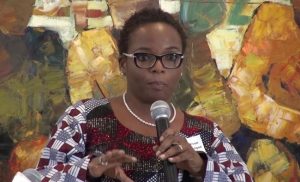A new report has revealed that over 80 percent of people living in Lagos lack access to water supply despite being in operation for over 100 years.

Making this known at an event tagged “Lagos water politics” held in Lagos on Tuesday, March 8, 2022; Prof. Taibat Lawanson of the Department of Urban and Regional Planning, University of Lagos, who gave a summary of the report, said that most Lagosians do not rely on public supply to get access to water.
“In Lagos State, the water crisis is acute, with less than 20 percent of the population having access to public supply,” Prof, Lawanson, citing findings from the report, said.
She disclosed that, despite having access to a variety of water sources, Nigeria is among the countries suffering from low access to clean and potable water.
The report further revealed that low-income communities in Lagos mostly bear the brunt of poor access to clean and affordable water, being mostly exposed to infectious diseases.
It further highlighted the need for the Lagos State Government to restructure and revive the public water supply in the state to improve access to clean potable water
Lagos State governor, Mr. Babajide Sanwo-Olu, had while speaking at the second edition of the Lagos International Water Conference in June 2021 acknowledged that over 8 million people summing up to 60 percent of people living in the state lacked access to clean water.
The governor disclosed that less than 40 percent of the people living in Lagos lacked access to clean and potable water.
“The Lagos State Water Supply Master Plan estimates daily water demand in the city at 540 million gallons per day (MGD) but production by the Lagos State Water Corporation (LSWC) stands at 210 MGD.
“This shows a clear deficit of over 300MGD, which translates to less than 40% access to clean, and safe water,” he said.
The governor said that his administration was working to close the gap between water demand and supply to ensure that clean and safe water was made readily available to the 14 million residents of the state.
By Ayomide Emeka Joseph
